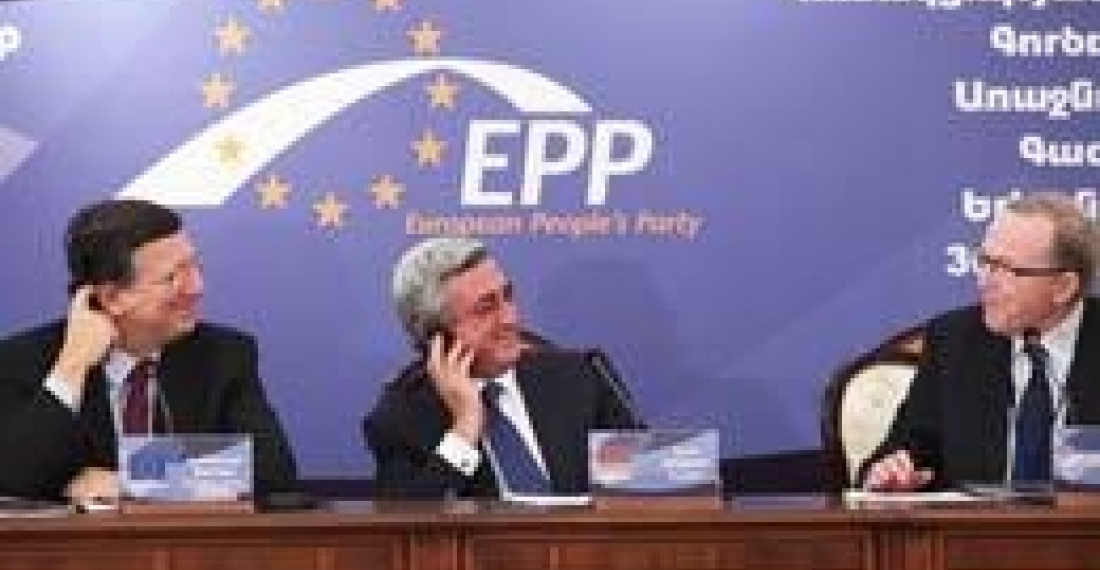Friday, November 30, ArmInfo
Being a Christian-Democratic party, the European People's Party (EPP) will endure no infringement of freedoms, xenophobia, military rhetoric or threats of war, Armenian President Serzh Sargsyan said at the second summit of the EPP Eastern Partnership leaders in Yerevan on Friday.
He said that the last closed border of Europe, the Armenian-Turkish border, should be opened immediately and without any preconditions. He added that Turkey, which seeks to become an EU member, continues its illegal blockade of Armenia, the "Eastern partner" of the EU.
He expressed hope that an easier visa regime with the EU for the Eastern Partnership countries will boost economic ties and will make easier the contacts between people in Armenian and Europe.
Sargsyan stressed the need to conduct similar events in Armenia and pointed out that the admission of three Armenian parties into the EPP has become a stimulus for deeper relations with Europe.







